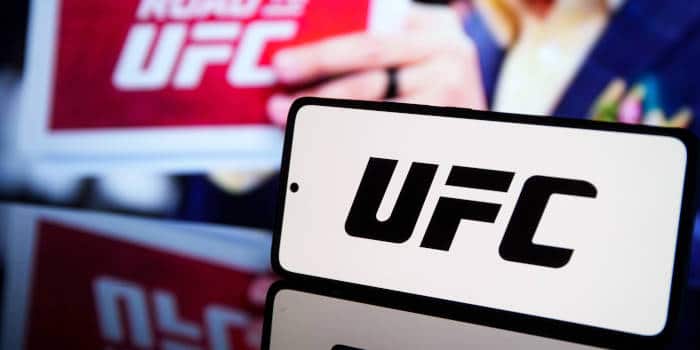- Casino
- By State
- Alabama
- Alaska
- Arizona
- Arkansas
- California
- Colorado
- Connecticut
- Delaware
- Georgia
- Florida
- Hawaii
- Idaho
- Illinois
- Indiana
- Iowa
- Kansas
- Kentucky
- Louisiana
- Maine
- Massachusetts
- Maryland
- Michigan
- Minnesota
- Mississippi
- Missouri
- Montana
- Nebraska
- Nevada
- New Hampshire
- New Jersey
- New Mexico
- New York
- North Carolina
- North Dakota
- Ohio
- Oklahoma
- Oregon
- Pennsylvania
- Rhode Island
- South Carolina
- South Dakota
- Tennessee
- Texas
- Utah
- Vermont
- Virginia
- Washington
- West Virginia
- Wisconsin
- Wyoming
- By State
- Slots
- Poker
- Sports
- Esports
Sportsbooks Registration Process Still Too Rigid in Nevada

- Nevada still won’t allow customers to place wagers remotely
- Estimated 17% of sports fans would rather play offshore than travel to a retail bookmaker
- The Silver State’s revenue from sports betting continues to grow
Nevada’s refusal to allow more mobile wagering opportunities may be hurting its
PASPA Defeat Gives Opportunity for Mobile Sports Betting
In May 2018, the Supreme Court of the United States (SCOTUS) came up with a ruling in which it said that PASPA 1992, a federal piece of legislation passed to prohibit individual states to own and run their own sports betting activities, was no longer available.
With that decision, SCOTUS effectively allowed states to hold debates on whether they wanted to allow sports betting and other gaming verticals to develop – whether that was online or at land-based venues.
The legalization of sports gambling will kill Nevada. Nevada: 😂 https://t.co/WYDz3j8Keh
— Darren Rovell (@darrenrovell) April 25, 2019
Nevada was among the first states to adopt or expand existing sports betting operations following the successful campaign led by New Jersey, which reportedly cost estimated $8 million in legal costs. To clarify, Nevada had had sports betting activities for a while prior to the SCOTUS ruling. It was the Garden State which one the case, but Nevada went first on with sports betting.
While registering oneself is a piece of cake, Nevada is still very old-fashioned when it comes to mobile gaming and betting. To move with the times, the Silver State would have to allow people to register online. Presently, all betting aficionados have to go to a retail sportsbook to complete the registration process – a rather unpalatable discomfort.
Bring Mobile Betting to the Fore or Perish
With New Jersey’s online industry in full swing, Nevada is facing a double-whammy. First, the state is not as populated as New Jersey, despite being a pull to millions each year, thanks to its well-developed gambling industry.
Second, the consistency in advertising – or indeed allowing – mobile operations is now threatening to take a bite in the future prospects of the state. This sentiment was confirmed by Brendan Bussmann from Global Market Advisors, a research firm:
“Nevada was the leader in being able to allow mobile wagering dating clear back to the wager pager. But it has not taken the full leap with mobile registration. In order for Nevada to continue to be the leader in gaming regulation, it should evolve their regulations to allow mobile registration.”
Register Online for Sports Betting in the U.S.
Presently, out of the 20 states that allow sports betting in some form, 11 need you to be physically present at a retail property to register. The measure is needed to avoid potential underage gambling and money laundering.
Meanwhile, only nine states provide players with options to register online and New Jersey is among them. Things get even better when you consider that 80% of all wagers that were placed in NJ came from a handheld device – a good upswing in the overall clout for mobile.
Now, the lack of a mobile betting option could be a deterrent for many people who would otherwise be active sports bettors. Based on data from the American Gaming Association (AGA), a group focusing on the sports betting industry, some 17% of people who haven’t placed bets would have done so should there have been remote betting options.
The Queues Are Soul-Crushing
While most bettors can quickly get to a counter on a regular day, but when they do have to wait to place bets on days like March Madness or Super Bowl could be soul-crushing. Lining up to place your wager could potentially eat into the better part of an hour, which would otherwise take you only a few seconds.
Making registration and betting mandatory causes sportsbooks, and states for that matter, harm as they miss out on potential revenue. Interestingly enough, not allowing mobile betting has not quite the effect that lawmakers had hoped for.
In 2017, Eilers & Krejcik conducted a study for the state of Indiana in which they proved that over 70% would continue betting at offshore venues should the state they lived in didn’t allow them to place digital wagers – or to be more specific, they were forced to go to a casino all the time. To beat the offshore competition and still focus on the retail experience, legal sportsbooks would need to offer a much better product, some estimate.
Meanwhile, William Hill CEO Joe Asher sees a different scenario for New Jersey and Nevada. According to Mr. Asher, making the trip to a casino in NJ takes up to two hours, which isn’t practical whereas the situation is a little different in Nevada, where people are focused around areas where casinos are common.
Nevada Continues to Grow Despite Lack of Mobile
The main argument in favor of retail is that casinos and sportsbooks thereof are located close enough to residents, Nevada Gaming Control Board Chairwoman Sandra Morgan has said. Yet, even in conditions where going to a physical sportsbook is a must, Nevada’s sector continued to grow posting $301 million in 2018 as opposed to $248 million in 2017.
Meanwhile, Nevada may have been unaffected by PASPA – or at least seemingly so – but the reality is different. SCOTUS has helped sports betting to become a popular pastime and as this is the case, even states that rely on retail operations will continue to see increase in their overall performance.
Related Topics:
With 5+ years of experience as an analyst, Julie—affectionately known as 'Jewels' in the office—has quickly become our go-to expert in the forex and cryptocurrency space. Her keen attention to detail and deep understanding of the industry make her an invaluable asset. Julie's expertise and enthusiasm have made her the top choice to co-pilot educational initiatives alongside Mike, bringing knowledge to the masses.
Previous Article

Sports
August 19, 2019
Star Group Australia Loses on VIP, Posts Growth Nevertheless

Must Read
More Articles




